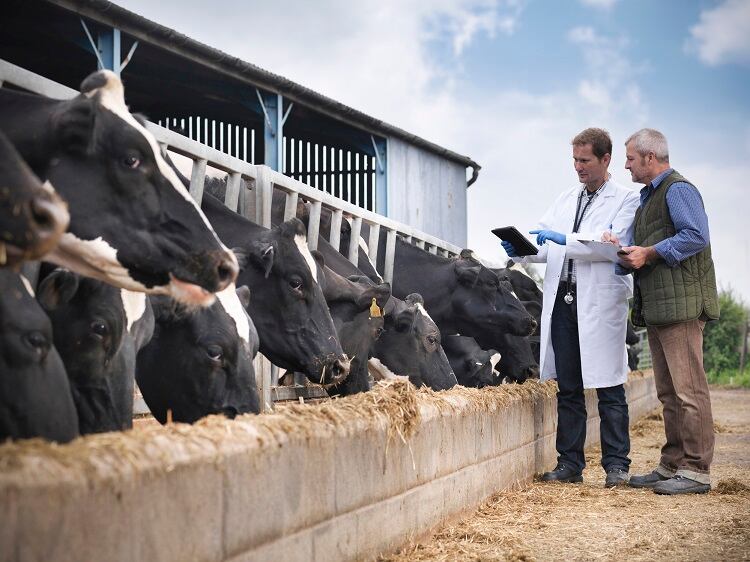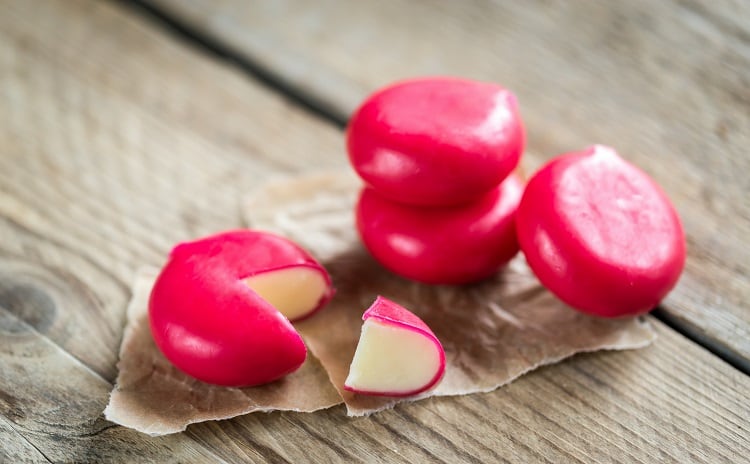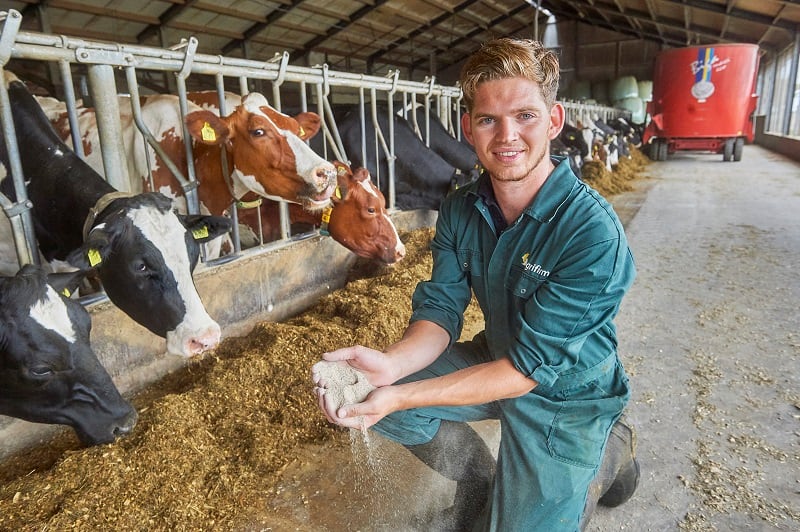Cows naturally emit methane – a potent greenhouse gas with a greater warming effect than CO2 – during digestion. A fully developed cow is thought to emit up to 500L of methane each day, making cows the second-most important source of methane from human activities, after fossil fuels.
Methane reduction is therefore a top priority for dairy companies working to reduce their carbon footprints. French cheese and snacks maker Bel Group, for one, is committed to limiting global warming to 1.5˚C, as per the 2015 Paris Agreement.
At the end of 2020, milk purchases represented 52% of the Group’s carbon emissions related to the production of raw materials. Reducing methane emissions associated with milk production could have a significant impact on the Group’s overall carbon footprint.
Now, a partnership with feed additive supplier dsm-firmenich is aiming to achieve just that. Bel Group is introducing dsm-firmenich’s enzyme-supressing additive to one of its major dairy basins, in a move expected to reduce annual methane emissions by 400 tons, and CO2 emissions by 11,000 tons.
How does a feed additive reduce methane emissions?
Feed additive Bovaer originally belonged to DSM’s portfolio, prior to its merger with Firmenich. The additive is the result of DSM’s Project Clean Cow: a 10-year R&D programme designed to lower the greenhouse gas footprint of cattle, and potentially have a meaningful impact on global climate change-related emissions.
Bovaer has been the subject of scientific studies conducted by research institutes and university including INRAE in France, Wageningen University in the Netherlands, and UC Davis in the US.
It works by supressing methane production in the cow’s stomach. The additive is made of two ingredients – nitrate and a bio-based alcohol – which are naturally broken down and processed by the animal’s metabolism, without affecting production volumes or milk quality.
Bovaer is made by heating these two ingredients to bind them temporarily together, which results in a liquid form. The liquid is then transformed into a powder for convenient use as a feed additive, Mark van Nieuwland, VP Bovaer at dsm-firmenich, told FoodNavigator.
As to how the feed additive reduces methane production, van Nieuwland explained that in a cow’s rumen, microbes work to break food, which in turn releases both hydrogen and carbon dioxide. “Enzymes in the rumen then combine these gases to form methane, which is released into the atmosphere through burping. Just a quarter teaspoon of Bovaer per cow per day supresses the enzyme that triggers methane production in a cow’s rumen.
“The additive takes effect immediately and is safely broken down in the cow’s normal digestive system into compounds already naturally present in the cow’s stomach.”
'We aim to make low-methane milk a reality in other markets'
Bel conducted a pilot experiment with dsm-firmenich’s feed additive in 2022, with ‘very’ positive results. On average, a 30% reduction in methane emissions from cows was achieved depending on their ration and the amount of Bovaer fed.
Bel is now starting to roll out this feed solution to most of its dairy producers in Slovakia, one of its major dairy basins. These producers supply around 70m litres of milk per year to make the Group’s Babybel cheeses for Central Europe (Germany, Czech Republic, and Slovakia) and UK markets.
For Bel, the rollout is evidence of the company’s ‘decisive’ steps towards a low-methane future for dairy. “At Bel, we are incredibly proud to be able, together with our partner farmers, to bring innovative solutions and transform the agricultural model to make it more sustainable and responsible,” said Simon Bonnet, Bel Group milk purchasing director.
“After deploying in Central Europe, we aim to make low-methane milk a reality in other markets as well.”
Pilots with Bovaer in France have been underway since early 2023.

Bovaer, which is the ‘first ever’ approved feed additive with an environmental impact, is being used by other dairy majors, including Dutch dairy company Royal FrieslandCampina and feed supplier Agrifirm.
In Denmark, Sweden and Germany, Arla Foods is using Bovaer in feed for 10,000 dairy cows across more than 50 farms, and in Belgium, Danone has incorporated the feed additive to release a ‘carbon neutral’ Actimel product.



